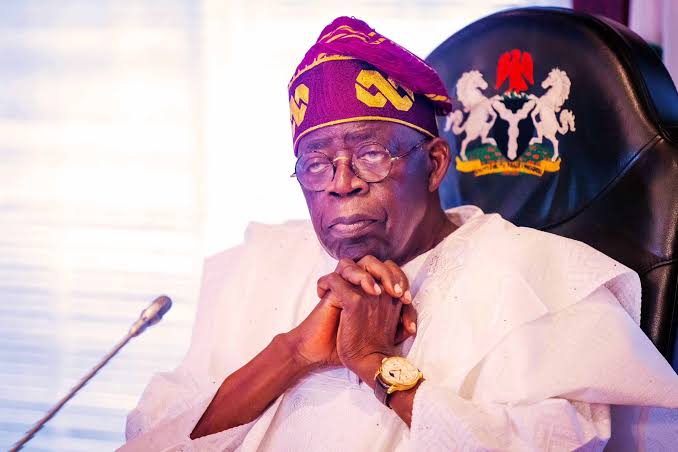
President Bola Tinubu has praised the National Assembly for approving his declaration of a state of emergency in Rivers State.
On Tuesday, Tinubu suspended Governor Siminalayi Fubara, his deputy Ngozi Odu, and all members of the State House of Assembly. He also appointed retired Chief of Naval Staff, Vice Admiral Ibok-Ete Ekwe Ibas, as the state’s sole administrator.
Both the Senate and the House of Representatives ratified the emergency rule on Thursday, following a debate on the matter.
In response through a statement by presidential spokesperson Bayo Onanuga, Tinubu described the approval as a necessary step to restore order after prolonged political instability that disrupted governance and posed risks to national economic security.
The President specifically commended Senate President Godswill Akpabio, Speaker of the House of Representatives Tajudeen Abbas, and other lawmakers for putting national interest above politics.
He also acknowledged that lawmakers carefully examined security reports before concluding that urgent intervention was needed.
“The crisis in Rivers State had reached a dangerous tipping point, threatening the security of vital oil and gas infrastructure and undermining the national economy,” Tinubu said.
“As I stated in my national address on March 18, the near-total collapse of governance, risks to federal economic assets, and the potential for widespread violence left no room for hesitation. This emergency measure is necessary to protect lives, secure critical infrastructure, and restore democratic governance.”
Tinubu assured Nigerians that the six-month emergency rule would provide a window for the newly appointed Sole Administrator to stabilize the state and foster dialogue among political stakeholders.
He reaffirmed his administration’s commitment to working closely with the National Assembly to promote peace, security, and economic progress nationwide.
“Today’s decision shows what we can achieve when unity and patriotism guide our actions. We remain committed to building a safer, stronger Nigeria—where every citizen’s rights and opportunities are protected,” he said.
The President also called on all stakeholders to support efforts to restore peace and stability in Rivers State.

The constitutionality of the president’s declaration of a state of emergency in Rivers State is a subject of intense debate and legal scrutiny. Here’s a breakdown of the key points:
Arguments Against Constitutionality:
* Overreach of Presidential Power:
* Critics argue that the president’s actions, particularly the suspension of elected officials, exceed the powers granted to him by the Nigerian Constitution.
* They contend that Section 305, which governs state of emergency declarations, does not authorize the president to remove elected governors or state lawmakers.
* Violation of Democratic Principles:
* The suspension of democratically elected officials is seen by many as a fundamental violation of democratic principles and the rule of law.
* Concerns have been raised that this action sets a dangerous precedent that could undermine Nigeria’s federal system.
* Concerns from Legal and Civil Organizations:
* Organizations like the Nigerian Bar Association (NBA) and Yiaga Africa have publicly condemned the president’s actions, stating that they are unconstitutional.
* These organizations have stressed that the reasons given for the declaration do not meet the constitutional threshold for a state of emergency.
* Procedural Concerns:
* There are also concerns surrounding the procedure used within the national assembly, with some claiming that the voice vote used, does not meet the requirements of a two thirds majority.
Constitutional Basis and Counterarguments:
* Section 305 of the Constitution:
* The president’s supporters point to Section 305 of the Constitution, which allows for the declaration of a state of emergency in certain circumstances.
* They argue that the situation in Rivers State, including security concerns and governance challenges, justifies the declaration.
* National Assembly Approval:
* The fact that the National Assembly has approved the proclamation is used as an argument to support the legality of the declaration.
Key Takeaways:
* The constitutionality of the president’s actions is a highly contested issue.
* Legal experts and civil society organizations have raised serious concerns about the overreach of presidential power and the violation of democratic principles.
* The National assembly approval of the proclamation, brings a level of legality to the presidents actions, however the way that approval was given is also being questioned.
* The situation highlights the ongoing debate about the balance of power between the federal and state governments in Nigeria.
It is important to follow the developments of this situation through reliable news sources, as the legal challenges and political discussions continue.